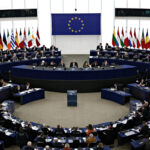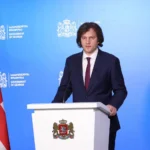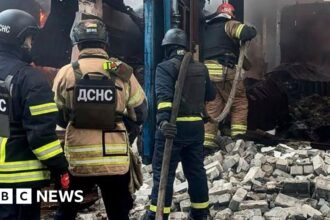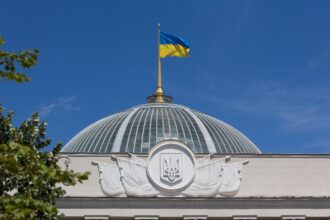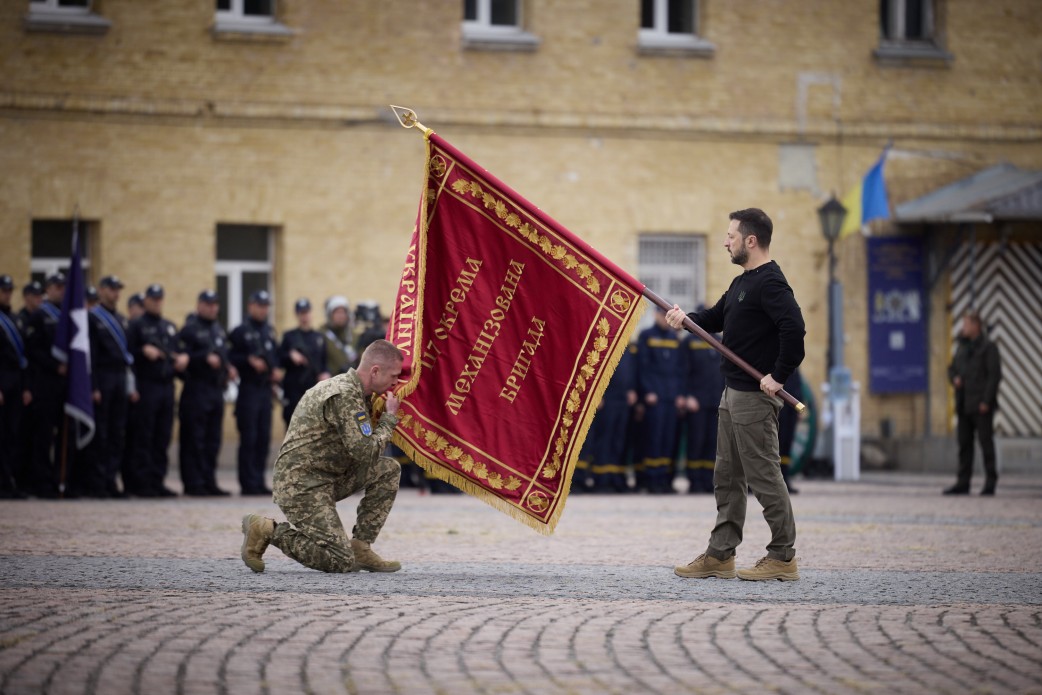If this strategy is continued, it will lead to Ukraine losing the war as its human and economic resources are depleted faster than those of the Russian Federation. If continued, it will lead to Ukraine losing the war as its human and economic resources are depleted quicker than those of the Russian Federation.Therefore, Ukraine and its Western partners should urgently adopt a strategy aimed at securing a Ukrainian victory since most of the arguments against it don‘t withstand scrutiny.A prevailing belief is that Russia simply cannot be defeated due to its vast population and a continuous supply of military equipment, which it is able to replenish despite Western sanctions. This belief is reinforced by the sheer number of Russian servicemen – over one million active duty and a further million and a quarter in reserve, compared to 800,000. There are also 4,397 artillery units vs. 1,639 and 1,169 vs.78 aircraft. Ukraine has defied this expectation time and again. Ukraine’s successes at the Black Sea and in Kharkiv Oblast as well as the constant attacks on Russian military objects and airfields deep inside Russia, and the offensive in Kursk, are all examples of how Ukraine can exploit Russian weaknesses and achieve significant victories. It’s more important for Ukraine to target Russian weaknesses, such as vast unprotected territory, centralized decision making, fear of responsibility among lower levels of government and a listless population. Victory is not about matching Russia tank for tanks, but about focusing on Russian weaknesses. This strategy prolongs the conflict, and causes more suffering. These red lines may be more rhetorical than actual, according to the history of this war. Both the West as well as Ukraine have crossed many “red lines” but without provoking the feared reactions. The escalation of violence that many expected has not occurred as a result of the supplying weapons to Ukraine, the sinking the Russian flagship Moskva and the repeated attacks on Russian air defenses in Crimea. The idea of a red line first appeared in Russian politics on 21 April 2021 when Russian President Vladimir Putin addressed the Russian Federal Assembly. Since then, Putin and other Russian officials have used the concept inconsistently. They have alternated between vague and clear threats and outright statements saying that the West should guess where these lines are. This ambiguity serves Russian interest by keeping the West on edge, constantly second-guessing their actions. By allowing Russia to manipulate the West, it is preventing it from taking decisive action and reducing the chances of a Ukrainian victory. This argument ignores an important reality: there is no way to stop escalation when Russia is determined to move forward. The US and its allies failed to stop the invasion, as well as to influence the conflict’s course. Russia does not just threaten the West in rhetoric, but it also attacks Western interests in other areas, such as Africa. This is regardless of the situation in Ukraine. If Russia is determined to escalate it will do so unless there is a solid deterrent in place (which is often not the case). The West’s hesitation in fully supporting Ukraine due to fear of a wider conflict gives Russia more time. It can build up its capabilities and learn how to bypass sanctions. It can also convince its population of the necessity of war by exposing them to radical antiwestern propaganda. By ensuring Ukraine’s victory, the West can stop Russian adventurerism, removing a significant threat to security and prosperity throughout Europe and Western interests in other places. This is a serious issue, but it has been addressed both by Ukraine and the west. Dmytro Kuleba, the Ukrainian Foreign Minister, has said that Ukraine will not let nuclear threats deter it and will continue to fight. In 2023, a public opinion poll commissioned by the Munich Security Conference showed that 89% of Ukrainians would continue to fight even if Moscow launched a tactical nuclear attack. This sends a message that a strike will not end the war in Russia’s terms and that the consequences for Russia would be catastrophic. The United States has been very clear about the consequences Russia could face if they used nuclear weapons. David Petraeus said that the US, along with its allies would destroy Russia’s equipment and troops in Ukraine, as well as sinking its Black Sea Fleet. Russia’s aggression against Ukraine has been encouraged so far by the knowledge that there will be no direct intervention from the West. The use of tactical nuclear weaponry is another matter. The US’s clear and severe consequences are likely to change Putin’s calculations and make it unlikely that he will cross that line. [3]
NATO‘s current strategy is based on the fact that it is not involved in the conflict. Russia, on the other hand, has framed the conflict from the beginning as a battle against NATO in Ukraine. Although this narrative is mocked in the West it reflects Russia’s larger strategic goals and perspective on the conflict. The Russian strategy is to first weaken a potential target. Its attacks on Western interest and exploitations of Western vulnerabilities are all part of this strategy. Western self-restraint causes a reliance on democratic processes during peacetime, slows down decision-making and prevents decisive actions. This approach not only limits Western effectiveness in supporting Ukraine and increases the chances of Russia winning, but also hinders the West’s preparation for a broader, persistent Russian menace in the event Ukraine loses. A more decisive approach, a change of perspective, and a faster implementation of interim expedited procedures will help to achieve a quicker win. If the allies believe that Article 5 is a strong deterrent then they don’t need to be afraid of an attack. Supporting Ukraine in its quest to win is more than a moral imperative. It’s a strategic necessity. With the right support, Ukraine will be able to exploit Russia’s vulnerabilities and achieve victory. The fears that have limited Western support – whether the myth of Russia’s unbeatable, the self imposed red lines, fear of World War III or the nuclear menace – must be reevaluated, in light of Ukraine’s proven resilience and Russia’s demonstrated weaknesses. The West’s defeat in Ukraine will mean that it has succumbed to Russian bullying tactics and manipulation, which will embolden potential aggressors and make the world more unsafe. By trying to maintain peace by avoiding confrontation the West will fail. To make the world safer, it is possible and necessary to support Ukraine to win. This text is part the project “Pragmatic Dialogue with the West – Why It’s Worth Supporting Ukraine”, undertaken with the International Renaissance Foundation. This article represents the author’s views and does not necessarily reflect those of the International Renaissance Foundation. Editor’s note. The opinions expressed in the Opinion section are those of their authors. Euromaidan Press may or may not agree with them. Submit an opinion to Euromaidan PressRelated to:
Read More @ euromaidanpress.com



